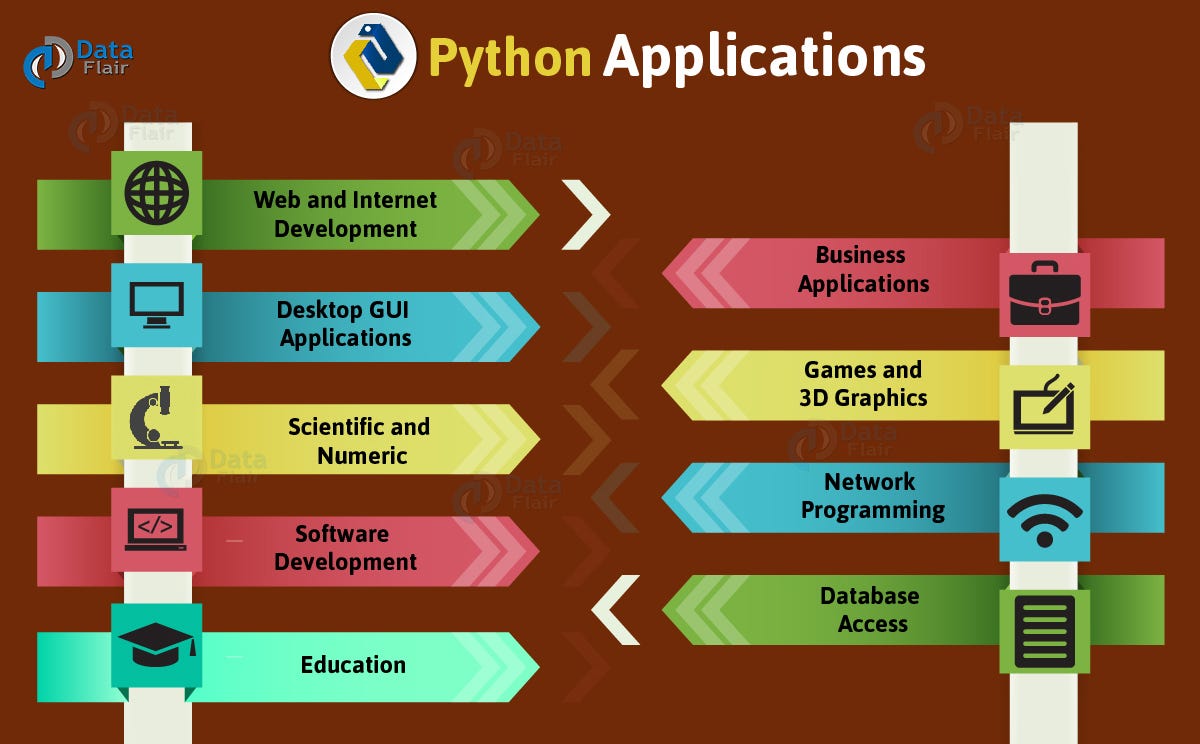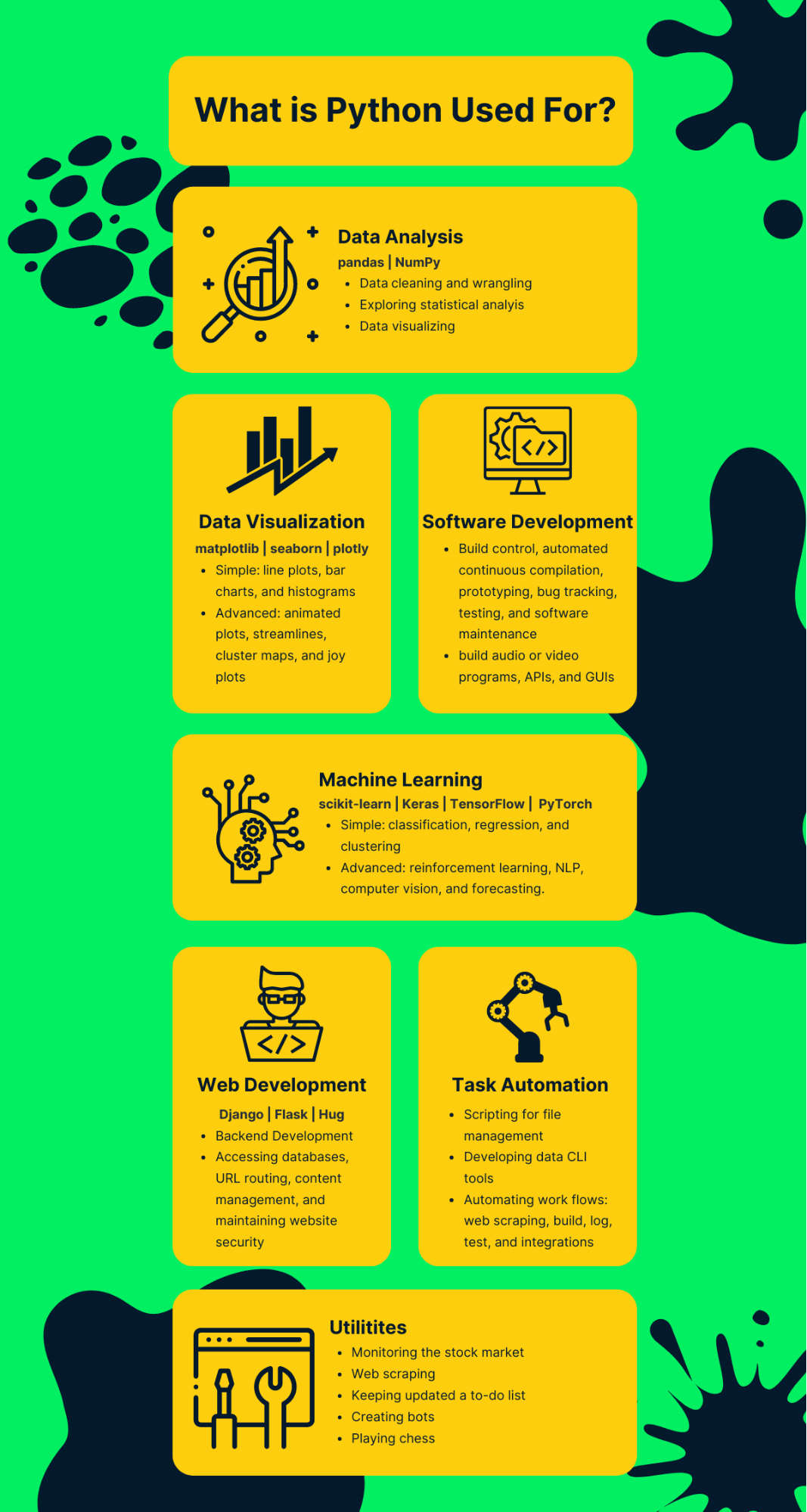How is Python used in real life?
How is Python used in real life?

Python! Such a wonderful language that has become an integral part of many industries and daily lives. Let me tell you, it's not just for coding enthusiasts anymore!
Data Science and Analytics: Python is a go-to tool for data scientists to analyze vast amounts of data, create visualizations, and perform complex machine learning tasks using libraries like NumPy, Pandas, Matplotlib, Scikit-Learn, and TensorFlow. Web Development: Frameworks like Flask and Django make it easy to build web applications with Python. You can also use it for backend development, integrating it with JavaScript-based frontend frameworks. Automation: Python's automation capabilities come in handy when you need to perform repetitive tasks, integrate systems, or create custom scripts for specific tasks using libraries like PyAutoGUI and pyinquirer. Artificial Intelligence (AI) and Machine Learning: Python is used extensively in AI and ML due to the ease of implementation and versatility. It's often used in conjunction with frameworks like Keras, OpenCV, and scikit-learn. Scientific Computing: Scientists use Python for simulating complex systems, modeling data, and visualizing results. Libraries like NumPy, SciPy, and Matplotlib make it perfect for numerical computations.
In conclusion, Python has become an essential tool across various industries, from data science and AI to gaming and finance. Its versatility, ease of use, and vast community make it a popular choice among developers, researchers, and professionals alike.
What can I do with Python as a beginner
As a beginner, you're about to embark on an exciting journey with Python! With its simplicity and versatility, you can accomplish a wide range of tasks and projects. Here are some ideas to get you started:
Web Development:
Build web applications: Use frameworks like Flask or Django to create dynamic websites. Create RESTful APIs: Build RESTful APIs using libraries like requests or aiohttp. Develop web scrapers: Scrape data from websites using libraries like BeautifulSoup or Scrapy.Data Analysis and Science:
Work with datasets: Use popular libraries like Pandas, NumPy, or Matplotlib to analyze and visualize data. Machine learning: Explore machine learning concepts using scikit-learn, TensorFlow, or Keras. Data visualization: Create interactive dashboards with libraries like Plotly or Bokeh.Automation:
Automate tasks: Use Python's built-in modules like os, shutil, or subprocess to automate repetitive tasks. Create scripts: Write scripts to automate file management, email handling, or system administration tasks.Gaming and Entertainment:
Game development: Create games using libraries like Pygame or Pyglet. Chatbots: Build chatbots using natural language processing (NLP) libraries like NLTK or spaCy. Audio and video processing: Use libraries like Librosa, OpenCV, or moviepy to work with audio and video files.Education and Research:
Create educational tools: Develop interactive educational materials, quizzes, or games using Python. Research assistance: Use Python's scientific computing capabilities to help with research tasks, such as data analysis or simulation. Simulations and modeling: Model complex systems or simulate real-world scenarios using libraries like Scipy or OpenTURNS.Miscellaneous:
Automation testing: Use Python's unittest module to write automated tests for your projects. Text processing: Process text data with libraries like NLTK, spaCy, or gensim. Network programming: Write network-related scripts using sockets, Twisted, or Scapy.As a beginner, it's essential to start with the basics and gradually move on to more advanced topics. You can begin by learning the fundamentals of Python, such as variables, data types, control structures, functions, and modules. From there, explore specific areas that interest you the most. With practice, patience, and persistence, you'll become proficient in Python and unlock its vast potential.
Happy coding!





























